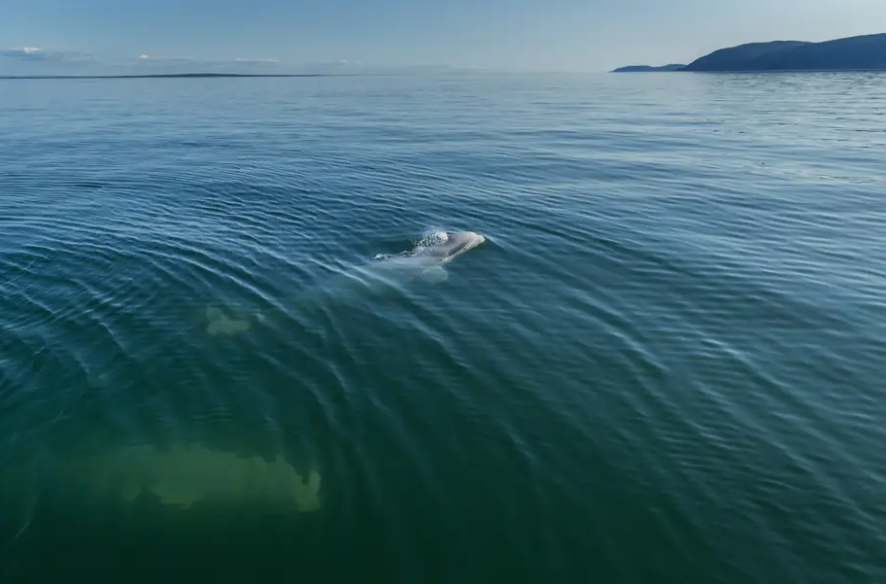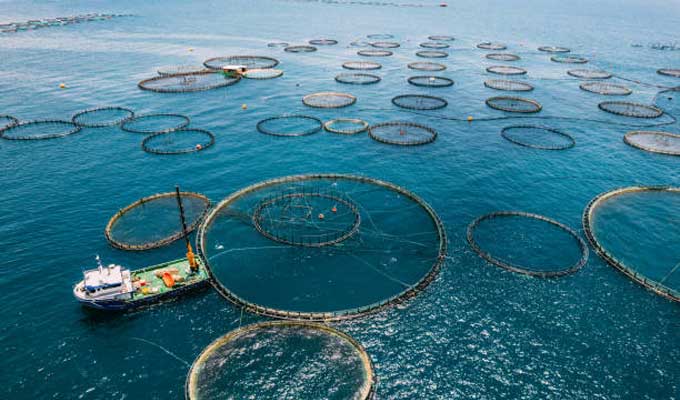On August 23, Ottawa unveiled its strategy on underwater noise, which the World Wildlife Fund (WWF) believes falls short in protecting ocean biodiversity. Beneath the waves, it’s not just the song of whales that fills the waters, but increasingly, the cacophony of human activities—a din that can have serious consequences for marine life.
Noise in the Oceans? A Rarely Discussed Issue…
« Noise and sound pollution caused by human activities [in the ocean] is something relatively new, dating back about a hundred years, » explains Kristen Powell, a marine conservation specialist at WWF Canada. Just as on land, human activities have multiplied in the oceans, with significant impacts. « For the vast majority of oceanic species, increasing ambient noise will have an effect, and it’s unlikely to be positive, » summarizes Pierre Cauchy, a professor of marine acoustics at the Institut des sciences de la mer (ISMER) in Rimouski.
Oceans Cover 70% of Our Planet—How Can Noise Have Such an Impact?
It’s important to know that sound travels up to five times faster in seawater than on land. The song of a blue whale, for example, can be detected hundreds of kilometers away in the ocean. « We know that a large majority of marine species use sound. We’ve long known that whales sing, but beyond that, we also know that many species rely on sound to detect predators and communicate with each other, in ways less poetic than the whales. Many invertebrates, small animals, make noise and use these sounds, » emphasizes Pierre Cauchy.
Can You Provide More Specific Examples?
Pierre Cauchy points out that researchers at ISMER, affiliated with the Université du Québec à Rimouski, are studying how mussel larvae develop under different noise levels. « They’ve shown that mussel larvae do not develop the same way depending on whether there is noise or not. We can also talk about plankton: the acoustic environment helps them decide if it’s a good place to stay, » he adds.
Is the Impact of Noise in the Oceans Really This Serious?
Research has shown that noise from deep-sea mining operations in the northeastern Atlantic has killed several giant squids in the area. A similar phenomenon occurred in 2017 when oil drilling operations decimated a zooplankton population off the coast of Tasmania in the Pacific.
« This noise pollution that we now know about can affect essential functions for marine species and harm their survival. It can have all sorts of impacts, especially for endangered species like the orcas on the West Coast or belugas in the St. Lawrence Estuary, » notes Kristen Powell.
« There are sounds in the ocean that can either kill or injure animals, like nuclear tests, military sonar, or deep-sea mining exploration, » adds Pierre Cauchy. « These are very loud noises. Other, quieter noises don’t have an immediate effect but can have a cumulative impact on an entire population. This leads to animals being in poorer health. It adds to the other stresses on marine ecosystems, like pollution, overfishing, and ocean warming. Ambient noise becomes another source of stress. »
What Is Canada Doing About This Issue?
A public consultation led by Fisheries and Oceans Canada is scheduled until October 22, following the release of the federal strategy. The next step involves the development of a federal action plan with a timeline. « The final recommendations and the first draft of the Federal Action Plan on Underwater Noise are expected to be published in 2025. After that, there will be consultation and engagement focused on the action plan and its implementation, » the official document states.
« Canada committed to publishing its underwater noise strategy in 2016. It was supposed to be released in 2021, but it was delayed for several years and has only just been made public, » says Kristen Powell from WWF. « But we don’t just want a strategy; we want concrete measures to reduce noise pollution, » she adds.
Source : lapresse



